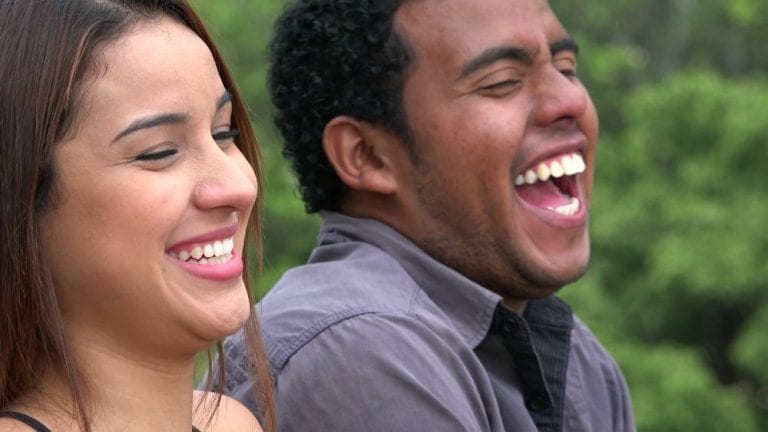We are not all equally gifted for the jokes. Many, on entry, declare themselves insolvent in this field, and surely they are right. And then there’s that embarrassing silence that is made after counting the alleged grace: “do Not pilláis?”, we ask, unbelieving. We only carcajeamos, nervously, us. What makes a joke good or that some people tell jokes better than others?
From its beginnings, modern psychology has studied the mechanism of this little story humorous, probably as old as humanity: Paul McDonald, of the University of Wolverhampton, says that the first thing is this proverb Sumerian 1900 bc: ‘Something which has never occurred since time immemorial: a young woman jumping out a fart on the knees of her husband”. Sigmund Freud already dealt deeply with the topic and, in the sixties, the expert Edward de Bono believed that laughter is produced because our brain is always looking for patterns to sort the information, is suddenly an unexpected connection.

image source: videoblocks.com
What is, then, the surprise the secret of a good joke? Up to a certain point… A research recently published by the cognitive psychologist Sascha Topolinski of the University of Würzburg (Germany) using the database of jokes of https://www.shortjoke.net, apparently shows that at times it is even more important to the fluidity with which the narras. In his experiments, he presented the subjects with important words of the final blow, the finishing move funny, minutes before to tell people about it, and many volunteers scored higher on the scale of “funny”. When you looked for words from the beginning, had no effect. The conclusion that draws Topolinski is that contrary to what says common sense, make a “spoiler” at times increases the effectiveness of the gag, because the listeners understand it better. As we all know, Eugene, Chiquito de la Calzada, this brother-in-law hilarious and other artists in the mood won on the audience by their way of telling the joke, even though we know the end in advance, or what we have heard it a thousand times.
According to the American psychologist Robert Provine, of the University of Maryland, “what makes a joke good is the same thing that makes it difficult to remember.” Provine refers to the unexpected twists in the stories that surprise us and make us laugh. That’s why, he adds, after listening to them usually we only remember the end. ?The good jokes work in the opposite poems or pieces of music, where rhyme and rhythm, repetition, strengthen memory?, remarks. On the contrary the structure and the finials predictable gags most common and easy to learn.

image source: guideposts.org
Robert Provine has spent two decades studying the role played by laughter and humor in our lives. Among other things it has discovered that laughing is an ancestral custom that helps us to strengthen our bonds with our fellow men, and that women laugh more than men.
